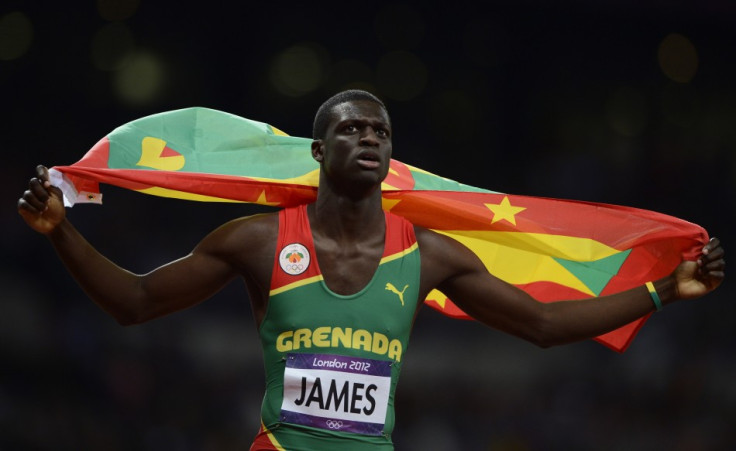Kirani James, Grenada and the Little Island with a Big Heart [BLOG]
Sprint sensation Kirani James, 19, makes history with victory in 400m meaning tiny Caribbean nation is smallest country ever to win a gold medal

Firstly, in the interest of transparency let me declare my interest. I am married to the daughter of Grenadians who emigrated to London in the 1960s.
Grenada itself is literally a drop in the ocean. If you've ever heard of it - most have not - you will have to search hard for it on a map of the Caribbean Sea to find it on the southern edge of of the Grenadines archipelago, off the coast of Venezuela. It is a textbook example of a "backwater". A mere 344 sq km with a population of 110,000 - about the size of a medium-sized town in the shires.
Indeed, a visitor will experience a touch of time travel on Grenada, which still has the feel of what England in the 1950s was supposed to be like. The school children wear traditional grammar school style uniforms, the roads are empty and the churches are packed on Sunday.
Travel agents sell it as a tropical paradise, but it is not swanky like Barbados, or vibrant like Jamaica. It is one of the few islands of the Caribbean that has not fallen victim to the curse of the cocaine trade and remains a castaway idyll whose inhabitants are softly-spoken and upstanding.
Thus, when Kirani crossed to the finish line to Olympic glory, unlike Jamaica's Usain Bolt who showed off his now famous pose (indeed if there is one thing that does make a son or daughter of Grenada angry it's to be mistaken for a Jamaican) the teenager first went to each of his fellow 400m athletes and shook their hands or patted them on the back. Not only is Kirani a champion but, as they say in Yiddish, he is also a mensch - possessing the dignifying qualities of generosity and kindness that all men should aspire to.
Similarly, at the end of the 400 metre semi-final which included the 'Blade Runner', South Africa's double amputee Oscar Pistorius (also making Olympic history), Kirani embraced him and insisted they exchange race bibs.
"He's been a huge inspiration for everybody, whether you're a track athlete or just a normal person," James said of Pistorius. "You can be somebody no matter what disability you have. Just being out there and competing against Oscar is a huge honour for me."
Far-flung, forgotten Grenada has nurtured a rare breed, of which the young Kirani is the latest ambassador. As he has proven, it is a mistake to underestimate their modesty and unprepossessing demeanour - it is not known as the spice island for nothing - for the Grenadians are also among the most industrious, disciplined, intelligent and determined of people.
As a result, Zelig-like, they pop up in modern history in the most unusual places.
Johnson Gideon Beharry who won the only Victoria Cross, the highest military decoration for valour in the Britsh armed forces, awarded during the recent Iraq conflict, was another proud son of Grenada.
His citation was a testimony to Grenadian grit and humanity. It read: "Private Beharry carried out two individual acts of great heroism by which he saved the lives of his comrades. Both were in direct face of the enemy, under intense fire, at great personal risk to himself (one leading to him sustaining very serious injuries). Beharry displayed repeated extreme gallantry and unquestioned valour, despite intense direct attacks, personal injury and damage to his vehicle in the face of relentless enemy action."
Other famous natives of Grenada or their descendants who have made a difference include:
Jennifer Hosten, the first black women to win Miss World in 1970.
Lewis Hamilton, the first black Formula 1 Champion.
David Pitt, the first black member of the House of Lords.
And my personal favourite is one El-Hajj Malik El-Shabazz, aka Malcolm X, the inspiring advocate of African Americans rights, the godfather of the Black Power movement and the the fourth of seven children of Grenada-born Louise Little.
Grenada may be Lilluptian in scale but it is also the home of giants.
Julian Kossoff is managing editor of IBTimes UK
© Copyright IBTimes 2025. All rights reserved.






















